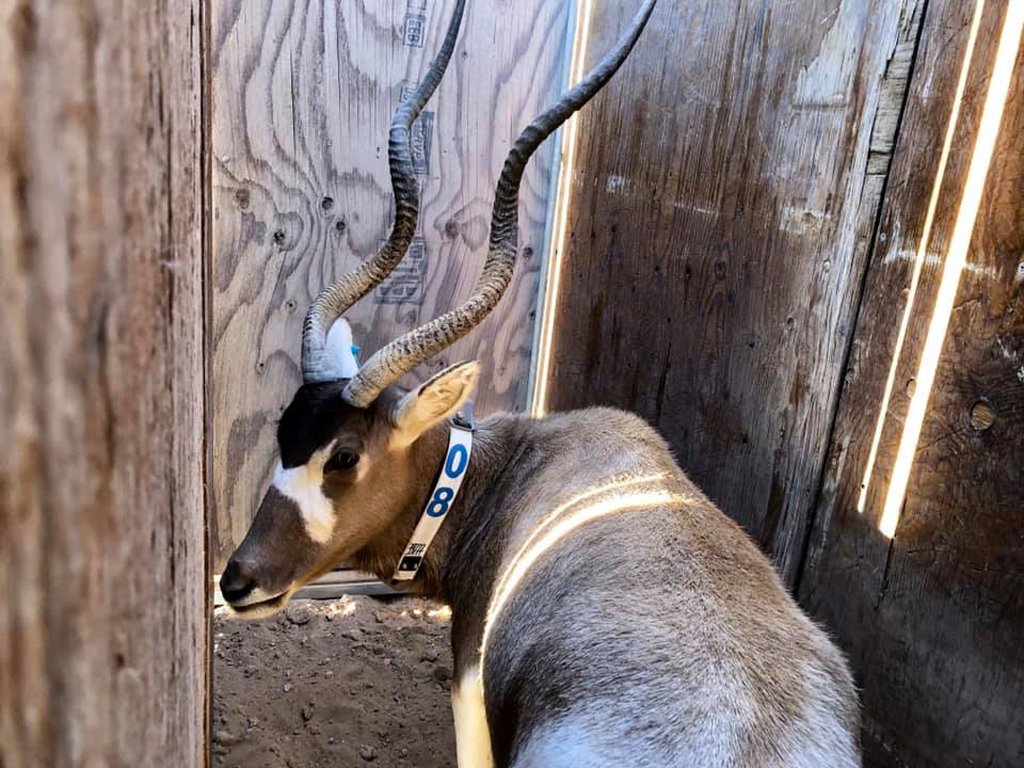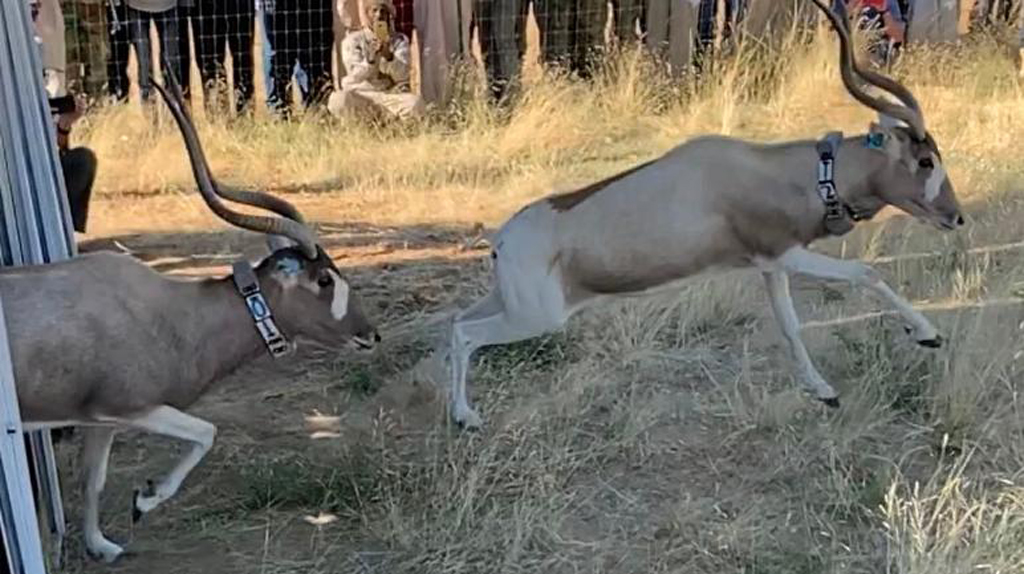
NEWS DESK POST by Anna Zacharias, The National
The wild addax antelope (Addax nasomaculatus) is perhaps the loneliest mammal on the planet. These majestic, snow-white (in summer) antelope once roamed in abundance across North Africa but poaching and industrialisation pushed the wild population to the brink of extinction. By 2016 just three remained in the wild, and they were only discovered after a 700 km ground search and a 3,200 km aerial survey led by the International Union for Conservation of Nature (IUCN).
Now the species is about to get a second chance.
The Environmental Agency Abu Dhabi plans to bring back the antelope from the knife-edge of extinction with the re-introduction of addax antelope bred in captivity. Just recently the agency flew 15 addax by cargo plane from the UAE to Chad, where they will be acclimatised in a holding boma before their release into the wild later this year.

The addax is perfectly adapted to surviving in one of the most extreme climates in the world – the desert. They have broad hooves that enable them to travel efficiently on fine desert sand and a white coat that reflects the harsh rays of the sun. The species is so spectacularly adapted to dry environments that it can get most of the water it needs from a diet of grass, tubers and desert scrub.
Over a period of six years (from 2010) the wild population plummeted from 200 to just three when its habitat became a region of drug and weapon smuggling and illegal wildlife trade after the 2011 political collapse in Libya. Oil installations by China National Petroleum Corporation wreaked havoc on its habitat, and poaching by the soldiers protecting the oil sites significantly increased in one of the species’ last safe havens in Niger, according to the IUCN.

The EAD hopes the reintroduction of the addax will emulate the success of the scimitar-horned oryx, which was reintroduced by the EAD in partnership with Chad and the Sahara Conservation Fund.
Today, 202 scimitar-horned oryx roam the Ouadi Rimé-Ouadi Achim Game Reserve Protected Area, following the birth of more than 40 calves this summer.
“We take great pride in the efforts being made to bring the scimitar-horned oryx back from the brink of extinction and to see our ‘World Herd’ of this species thriving once again in the desert regions of Chad,” said Dr Shaikha Al Dhaheri, the EAD Secretary-General.
Hundreds of oryx will be reintroduced over the course of a five-year programme. The programme’s success has affected the scale and ambition of future species projects, said Dr Al Dhaheri.
“Many lessons have been learnt since the inception of the programme and we hope that the valuable knowledge and technical expertise we gained will pave the way for the reintroduction of these other highly endangered antelope species into the Ouadi Rimé-Ouadi Achim Game Reserve.”
To comment on this story: Login (or sign up) to our app here - it's a troll-free safe place 🙂.![]()






